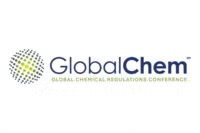WASHINGTON (Dec. 10, 2024) – The Chlorine Panel of the American Chemistry Council (ACC) recognizes the Environmental Protection Agency’s (EPA) efforts to regulate trichloroethylene (TCE) under the Toxic Substances Control Act (TSCA) to mitigate unreasonable risk to human health and the environment. While ACC acknowledges EPA made several important adjustments in the final rule, concerns remain about the potential impacts on industries that rely on TCE for critical applications.
EPA's final rule prohibits most uses of TCE within one year while providing extended timelines of up to 8.5 to 10 years for essential applications, such as refrigerant manufacturing and uses critical to national security. The rule also establishes an interim Existing Chemical Exposure Limit (ECEL) of 0.2 ppm, an adjustment from the initially proposed 0.001 ppm. Furthermore, the rule’s improved alignment with the American Innovation and Manufacturing (AIM) Act regarding the phaseout of TCE in refrigerant production offers greater consistency for industries working to meet climate goals.
ACC acknowledges the important adjustments by the agency in the TCE final rule and the recognition of the need for reasonable phaseouts in critical areas such as refrigerant production. However, there are still challenges ahead to allow industries to transition without disrupting supply chains or critical infrastructure.
ACC’s Chlorine Panel, which represents manufacturers and users of chlorinated organics, welcomes EPA’s decision to allow the longstanding reuse and recycling of TCE byproducts in chemical manufacturing. Allowing these processes to continue with worker protection helps achieve environmental goals without delaying remediation projects or unduly hindering chemical manufacturing processes.
ACC emphasizes the need for EPA to provide guidance to support industry compliance with the rule and to promote compliance that remains feasible for businesses while protecting health and safety.
“Providing avenues for the reuse of TCE byproducts demonstrates EPA’s consideration of the significant economic consequences of the rule, as proposed,” added Simon. “However, input from industry will continue to be essential to inform successful implementation.”
ACC is committed to working with EPA to develop effective TSCA risk management measures that protect public health while supporting the critical industries that drive the economy and the climate transition.
For more information, please visit: https://www.americanchemistry.com/industry-groups/chlorinated-solvents/trichloroethylene.


